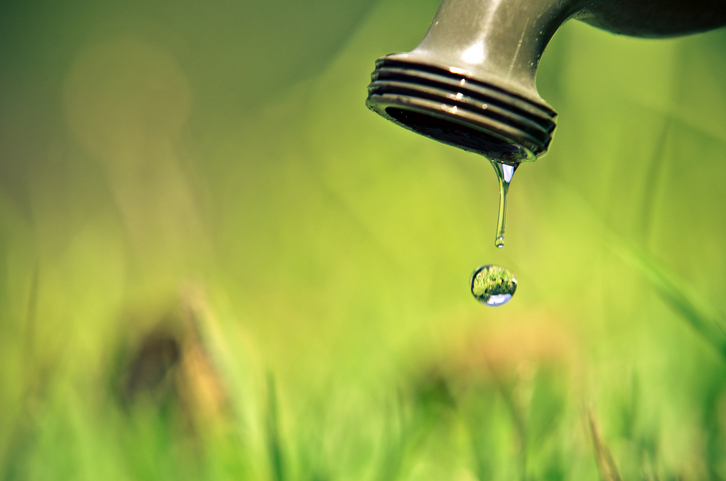 You don’t need a degree in horticulture to know that water is the lifeblood to a green, luscious garden. But the spring and summer seasons also tend to be when many homeowners see a significant increase in their water usage–and utility bills–due to efforts to help their gardens flourish. However, a great looking garden doesn’t have to break the bank. Yes, you can likely rely on Mother Nature from time to time to help fuel your garden’s growth, but there are many other practical tips and strategies you should administer today to conserve water while keeping your garden in peak shape.
You don’t need a degree in horticulture to know that water is the lifeblood to a green, luscious garden. But the spring and summer seasons also tend to be when many homeowners see a significant increase in their water usage–and utility bills–due to efforts to help their gardens flourish. However, a great looking garden doesn’t have to break the bank. Yes, you can likely rely on Mother Nature from time to time to help fuel your garden’s growth, but there are many other practical tips and strategies you should administer today to conserve water while keeping your garden in peak shape.
1. Water Early: This is the easiest way to ensure the water that you do use goes further–water early. We’re talking around sunrise, when winds and temperatures are both low. Calm winds ensure that more water is reaching the plants in your garden and not blowing to areas around your garden. Low temperatures reduce water loss from evaporation that is more common later in the day.
2. Maximize Rainwater/Miscellaneous Water: If natural rainfall can serve as the main source for your garden, why water? While you’re unlikely to go through a whole summer using just rainwater, there are a variety of ways you can make natural rainfall go further. For instance, integrating rainwater collectors, like the popular rain barrel, into your home’s gutter system. The main purpose of your gutters is to direct collected rainwater from the roof and disperse it safely away from your home. Why not capture this rainwater to store and use within your garden? It’s estimated that a 1,000 square foot roof can shed up to 600 gallons of rain water per hour in moderate rainfall.
On a related note, consider taking steps to maximize water usage in the home. For example, capture cool shower water in a bucket as you wait for it to heat, and save water used for cooking that you’d otherwise pour down the sink. You can even reuse old fish tank water. Every little bit can go a long way.
3. Tune Up Your Sprinklers: If you water your garden with in-ground sprinklers, we encourage you to inspect the system every spring to ensure it’s operating efficiently. Adjust sprinkler heads so that water isn’t wasted on the likes of sidewalks, patios or pavement to maximize watering efficiency, and be sure that there are no breaks in the hoses that run beneath the soil. We’d also recommend integrating a rainfall sensor into your system so that you’re not watering when the garden doesn’t need it.
4. Tune Up Your Hose: If you water manually by hose, don’t use a standard hose and nozzle. This is inefficient because of the amount of water that is lost to evaporation, runoff and mist. Instead, opt for either a wand nozzle or a soaker hose. Additionally, check the hose connection to the spigot on your home and the hose connection to the nozzle. Is either dripping when the water is turned on? If so, you’re wasting water–and likely much more than you realize. This is easily resolved by purchasing and installing a better hose fitting for either connection.
5. Incorporate Water-Friendly Details: Finally, there are many things you can do with the plants and garden design itself to maximize water usage. Consider integrating xeriscaping techniques into your landscaping plan. Start with using native plants that are already adapted to the soil conditions at your home, and consider placing mulch around plants to reduce water runoff, minimize weed growth and help keep the soil moist. You might also consider composting, a practice that helps keep moisture in the soil for longer. Finally, consider placing plants that require more water next to each other. This way, you can better target all of them at once with drip irrigation or by adjusting sprinkler zones accordingly.
You’re never going to grow a lush garden without water, but that doesn’t mean you have to pay dearly for it in utility costs.








You can simply buy a smart irrigating system for your garden.
Nice Tips for water conservation